The Center for Hellenic Studies supports scholars and their research with a variety of configurations. All fellows receive an appointment for at least one academic year. Fellows receive varying levels of support and may reside at the Center for a term up to 18 weeks, depending on the scope and needs of their proposed projects. For more information about their research, see the CHS Research Bulletin.
Spring Term Fellows
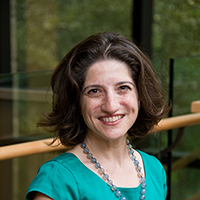 Seemee Ali (PhD University of Dallas) teaches at Carthage College, where she holds a joint appointment in the interdisciplinary Great Ideas Program and the English Department. Her most recent essay, “Wallace Stevens’ Scrawny Cry,” appears in The Lyric Prospect(Dallas Institute Press, 2012). She is now working on a book about immortality and finitude in the Iliad, tentatively entitled The Reconciliation of Hera and Thetis.
Seemee Ali (PhD University of Dallas) teaches at Carthage College, where she holds a joint appointment in the interdisciplinary Great Ideas Program and the English Department. Her most recent essay, “Wallace Stevens’ Scrawny Cry,” appears in The Lyric Prospect(Dallas Institute Press, 2012). She is now working on a book about immortality and finitude in the Iliad, tentatively entitled The Reconciliation of Hera and Thetis.

Kate Birney (PhD Harvard) is Assistant Professor of Classical Studies at Wesleyan University. A Mediterranean archaeologist, she specializes in interaction and cultural exchange between the Aegean and the Near East, both mythological and material. In particular, she is examining interactions between Greece and the Near East in the Persian and Hellenistic periods (6th-2nd c. BC), as part of ongoing archaeological work at the site of Ashkelon, on the south coast of Israel. Her research is focused upon the development of the Hellenistic city and its connections across the Aegean.
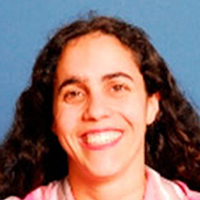 Christy Constantakopoulou (DPhil Oxford) is a Senior Lecturer in the department of History, Classics and Archaeology, Birkbeck College, London. Her research focuses on ancient Greek history and epigraphy. She has published a monograph on the history of the Aegean islands and the concept of insularity in the archaic and classical period (OUP 2007), and has co-edited a volume on networks in the ancient Mediterranean (Routledge 2009). Her current research project is on networks of interaction in the southern Aegean during the third century BC. While at the CHS, she will examine the third-century Delian inventories in order to reconstruct the social dynamics of dedication.
Christy Constantakopoulou (DPhil Oxford) is a Senior Lecturer in the department of History, Classics and Archaeology, Birkbeck College, London. Her research focuses on ancient Greek history and epigraphy. She has published a monograph on the history of the Aegean islands and the concept of insularity in the archaic and classical period (OUP 2007), and has co-edited a volume on networks in the ancient Mediterranean (Routledge 2009). Her current research project is on networks of interaction in the southern Aegean during the third century BC. While at the CHS, she will examine the third-century Delian inventories in order to reconstruct the social dynamics of dedication.
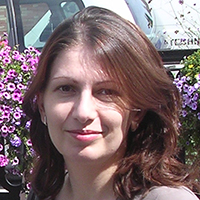 Madalina Dana (PhD École des Hautes Études en Sciences Sociales) is an Assistant Professor in Ancient Greek History at the University Paris 1 Panthéon Sorbonne. Her research focuses on cultural history with special interest in mobility and exchanges in cultural context. Her publications include a book about the cultural and professional networks between the Euxine Pontus and the Mediterranean, a co-edited volume about Greek and Roman colonization, and many articles on literacy and epigraphic practices, mobility of the scholars and local history. At the CHS, her project concerns the publication of a corpus of Greek letters on lead and ostraka, coming principally from the edges of the Greek world, that is the northern shore of the Black Sea and the western regions. She will be exploring the literacy of merchants, before treating the economic, commercial and juridical aspects and also the contacts with local populations in colonial milieu. She also co-directs a program at center AnHiMa in Paris, Diktynna. Épigraphie et société dans les mondes hellénistique et romain.
Madalina Dana (PhD École des Hautes Études en Sciences Sociales) is an Assistant Professor in Ancient Greek History at the University Paris 1 Panthéon Sorbonne. Her research focuses on cultural history with special interest in mobility and exchanges in cultural context. Her publications include a book about the cultural and professional networks between the Euxine Pontus and the Mediterranean, a co-edited volume about Greek and Roman colonization, and many articles on literacy and epigraphic practices, mobility of the scholars and local history. At the CHS, her project concerns the publication of a corpus of Greek letters on lead and ostraka, coming principally from the edges of the Greek world, that is the northern shore of the Black Sea and the western regions. She will be exploring the literacy of merchants, before treating the economic, commercial and juridical aspects and also the contacts with local populations in colonial milieu. She also co-directs a program at center AnHiMa in Paris, Diktynna. Épigraphie et société dans les mondes hellénistique et romain.
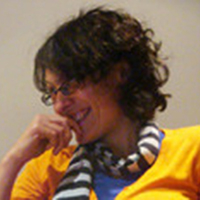 Sebastiana Nervegna (PhD University of Toronto) was educated in Italy and in Canada. She comes to the CHS after holding two fellowships at the Centre for Classical and Near Eastern Studies of Australia. She is the author of Menander in Antiquity: The Contexts of Reception (Cambridge, 2013) and of several contributions on the history, iconography, and reception of ancient theatre. At the CHS she will be working on a monograph on the theatrical reception of Classical Greek tragedy during the Hellenistic Period, Reperforming Classics: The Tragic Repertoire of Ancient Actors (currently under contract with Cambridge University Press).
Sebastiana Nervegna (PhD University of Toronto) was educated in Italy and in Canada. She comes to the CHS after holding two fellowships at the Centre for Classical and Near Eastern Studies of Australia. She is the author of Menander in Antiquity: The Contexts of Reception (Cambridge, 2013) and of several contributions on the history, iconography, and reception of ancient theatre. At the CHS she will be working on a monograph on the theatrical reception of Classical Greek tragedy during the Hellenistic Period, Reperforming Classics: The Tragic Repertoire of Ancient Actors (currently under contract with Cambridge University Press).
 Zacharoula Petraki (PhD University of Birmingham) is a Lecturer in Classics at the University of Crete and an Adjunct Lecturer at the Open University of Cyprus. Her research interests lie in ancient Greek Philosophy, Greek lyric poetry, ancient aesthetics, the performance of ancient Greek poetry, the interface between literature and philosophy and the Philosophy of language. In the Poetics of Philosophical Language (De Gruyter 2011), Zacharoula investigated the diverse literary styles of the Platonic Republic and examined the philosophic reasons behind Plato’s remolding of tropes and techniques from poetry and the Presocratics. During her stay at the CHS, she plans to finish her second monograph on Plato’s use of pictorial arts as metaphors for philosophic discourse and method in the middle and late dialogues.
Zacharoula Petraki (PhD University of Birmingham) is a Lecturer in Classics at the University of Crete and an Adjunct Lecturer at the Open University of Cyprus. Her research interests lie in ancient Greek Philosophy, Greek lyric poetry, ancient aesthetics, the performance of ancient Greek poetry, the interface between literature and philosophy and the Philosophy of language. In the Poetics of Philosophical Language (De Gruyter 2011), Zacharoula investigated the diverse literary styles of the Platonic Republic and examined the philosophic reasons behind Plato’s remolding of tropes and techniques from poetry and the Presocratics. During her stay at the CHS, she plans to finish her second monograph on Plato’s use of pictorial arts as metaphors for philosophic discourse and method in the middle and late dialogues.
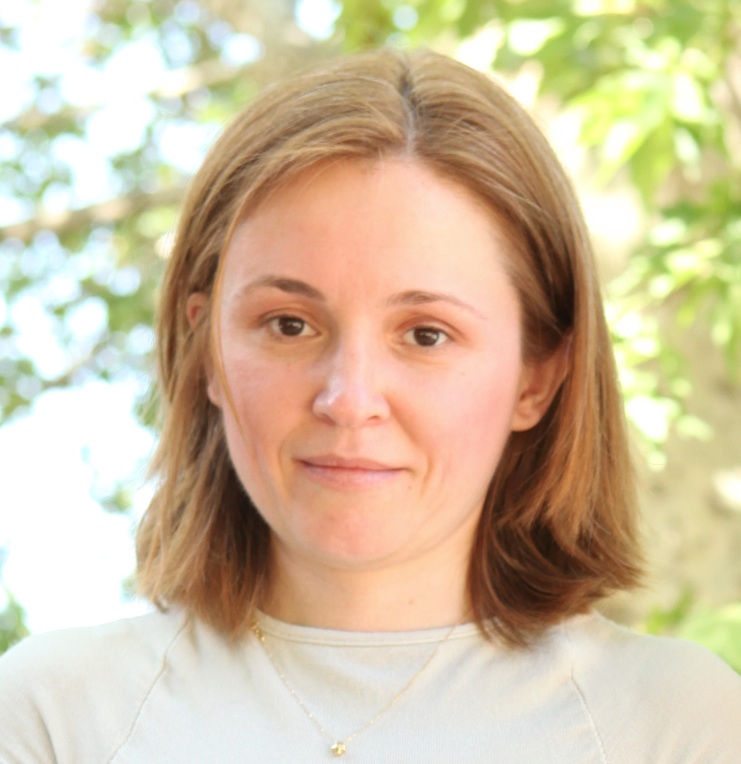 Maria G. Xanthou (PhD Aristotle University of Thessaloniki) has taught Classical Languages, Literature and Thought and ICT in teaching classical languages at Aristotle University of Thessaloniki since 2001. She is Adjunct Lecturer at the Open University of Cyprus since 2012 and a research collaborator of the Centre for Greek Language (Thessaloniki). Her research interests include Greek lyric poetry, both monodic and choral (Stesichorus, Pindar and Bacchylides), Aristophanic and Attic comedy (5th c. B.C.E.), Attic rhetoric (Isocrates), history of classical scholarship (German classical scholarship of the 19th c.), textual criticism, literary theory, rhetoric, ancient theory of rhetoric (definition and use of asyndeton), e-learning, ICT use for teaching classical languages and integration of ICT methodologies in the curriculum. While at CHS, she will pursue further research on the social and cultural construction of fear (φόβος), awe (δέος) and anger (ὀργή) as emotions in the fifth and fourth century BCE political scene in Attica, Greek mainland and the islands, and the formation of good will (εὔνοια) as a response towards these emotions and its significance in the development of Isocrates’s emotional intelligence theory.
Maria G. Xanthou (PhD Aristotle University of Thessaloniki) has taught Classical Languages, Literature and Thought and ICT in teaching classical languages at Aristotle University of Thessaloniki since 2001. She is Adjunct Lecturer at the Open University of Cyprus since 2012 and a research collaborator of the Centre for Greek Language (Thessaloniki). Her research interests include Greek lyric poetry, both monodic and choral (Stesichorus, Pindar and Bacchylides), Aristophanic and Attic comedy (5th c. B.C.E.), Attic rhetoric (Isocrates), history of classical scholarship (German classical scholarship of the 19th c.), textual criticism, literary theory, rhetoric, ancient theory of rhetoric (definition and use of asyndeton), e-learning, ICT use for teaching classical languages and integration of ICT methodologies in the curriculum. While at CHS, she will pursue further research on the social and cultural construction of fear (φόβος), awe (δέος) and anger (ὀργή) as emotions in the fifth and fourth century BCE political scene in Attica, Greek mainland and the islands, and the formation of good will (εὔνοια) as a response towards these emotions and its significance in the development of Isocrates’s emotional intelligence theory.
